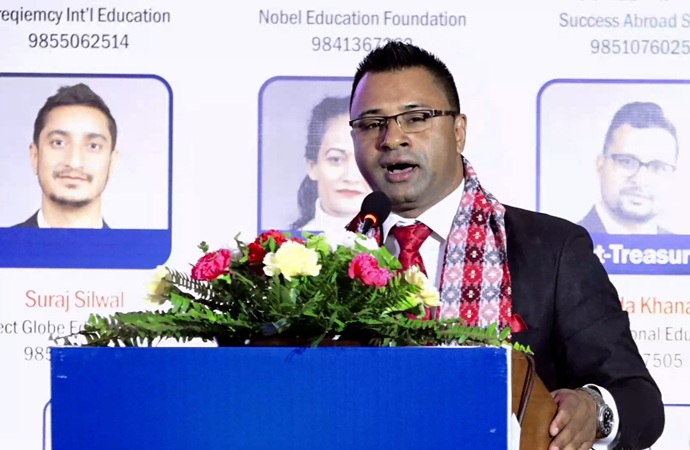Everest Bank’s 2082 E-Calendar Showcasing Nepal’s Traditional Sports and Games
19th November 2025, Kathmandu
Everest Bank Limited has released its official e-calendar for the Nepali year 2082, with the theme focused on showcasing and preserving Nepal’s traditional sports and games.
Everest Bank’s 2082 E-Calendar
This initiative aims to document local heritage and raise cultural awareness among the younger generations at a time when indigenous activities face replacement by modern forms of sports and entertainment. The calendar highlights one traditional game for each month, offering detailed descriptions and illustrations.
Preserving Cultural Heritage through Monthly Features
The calendar acts as a cultural documentation effort, dedicating each Nepali month to a different traditional game played competitively or recreationally during cultural festivals and community events.
Traditional Sports with Agricultural and Communal Roots
Baisakh – Ox Cart Racing: This traditional Terai sport, once common around the Lumbini area, involves competitors racing ox-drawn wooden carts over muddy tracks. The recent revival of the sport attempts to reconnect youth with agriculture and local agrarian traditions.
Ashadh – The Hālo Race: Held during the Ropain (rice-planting celebration), this communal event features farmers racing ox-drawn plows through waterlogged fields. It serves to reinforce communal unity and celebrates Nepal’s deep agrarian roots.
Shrawan – Horsemanship: This tradition is observed during the Yarthung festival celebrated in the high Himalayan regions of Manang and Mustang. The event features competitive races and ceremonial rides of decorated horses, emphasizing both rider skill and horse agility.
Chaitra – Horse Race (Ghode Jatra): Held during the Ghode Jatra festival, which some traditions link to the defeat of a demon named Tundi. Today, the Nepal Army organizes grand parades and horse shows at Tundikhel, keeping the tradition of horsemanship alive.
Games of Precision, Strategy, and Skill
Jestha – Chhelo: Popular in the hilly regions of Nepal, particularly Kaski and Lamjung, Chhelo is a traditional game resembling the Olympic sport of shot put. Players compete by throwing a stone from a fixed spot, with the farthest throw determining the winner.
Bhadra – Gatta: A fast-paced traditional game that requires both precision and quick reflexes. Players toss a single stone into the air while simultaneously collecting an increasing number of other stones from the ground, performing this task under escalating levels of difficulty without making mistakes.
Kartik – Dandi Biyo: Once widely considered Nepal’s unofficial national sport, Dandi Biyo is played with two wooden pieces: a long stick (dandi) and a smaller, tapered pin (biyo). The player uses the dandi to strike the biyo, first flipping it into the air and then hitting it a second time for distance and points. Though no longer officially recognized as the national sport, it remains widely played across the country, especially in rural areas.
Poush – Bagh Chal: This is a highly strategic two-player board game unique to Nepal, translating to “Tiger Game.” The game involves an unequal contest between four tigers and twenty goats. The tigers win by capturing the goats, while the goats win by successfully trapping the tigers, thereby blocking all their possible moves.
Magh – Pandhunge (Seven Stones): A team-based game known by various regional names. One team attempts to knock down a stack of stones using a ball, while the opposing team acts as defenders, trying to eliminate the opponents before they can successfully rebuild the stack.
Falgun – Archery: This traditional skill is central to the Toran La festival celebrated primarily by the Thakali community. The competition features archers vying for the best marksmanship, often aiming at human-shaped targets, with the most skilled archer declared the winner.
Cultural Recreation
Ashwin – Flying Kites: A much-loved and highly visible recreational activity that traditionally marks the festivals of Dashain and Tihar. The activity often escalates into competitive kite battles, where participants attempt to cut the strings of their opponents’ kites.
Mangsir – Ligligkot Race: This historic event was once a ceremonial race used to choose the king of Ligligkot for a period of one year. Today, the tradition continues as an annual 13.8 km race held in Gorkha, running from Chepeghat to the historical Ligligkot Gadhi.
Everest Bank’s e-calendar serves as an important tool for cultural preservation, providing accessible documentation of Nepal’s rich and diverse traditional games, ensuring these cultural activities are remembered and celebrated.
For More: Everest Bank’s 2082 E-Calendar







